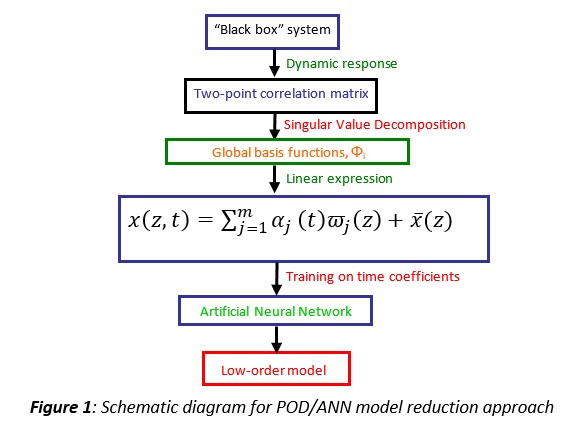2022 Annual Meeting
(363e) A Data-Driven Dynamic Modeling Methodology Based on POD/Oed/ANNs Method for Large-Scale Dynamic Systems
Author
In this research, a data-driven dynamic modeling methodology for large-scale dynamic systems has been developed based on proper orthogonal decomposition (POD), orthogonal experimental design (OED), and artificial neural networks (ANNs) method, as shown in Figure 1. The POD method is based on the spectral theory of compact, self-adjoint operators expressed in the KarhunenâLoève decomposition theorem, which is a powerful method to catch the most âenergyâ in an average sense for efficient linear decomposition in terms of data compression. The OED method is an efficient way for data sampling to study the effect of many factors simultaneously using orthogonal arrays and factor analysis. The POD is first applied to extract accurate non-linear low-order models from the non-linear dynamic system using method of snapshots, then a series of successive feedforward ANNs with the OED method are trained based on the time coefficients of POD basis functions to obtain the dynamic model for the system. A benchmark case study for the dynamic oscillatory behavior of a tubular reactor with recycle is used as an illustrative example to demonstrate this methodology.
